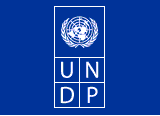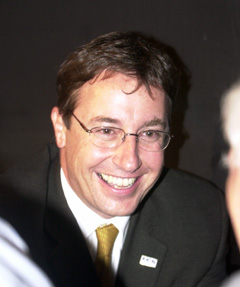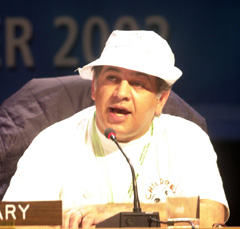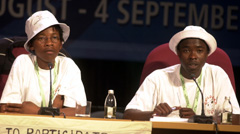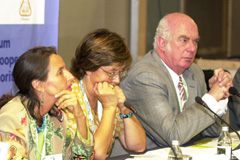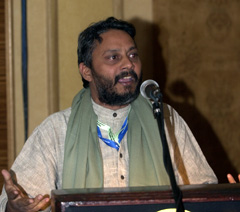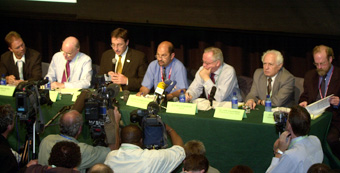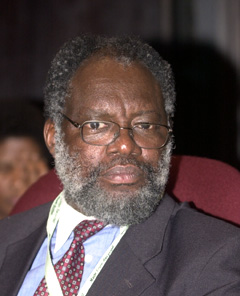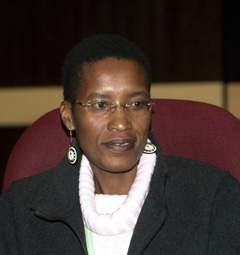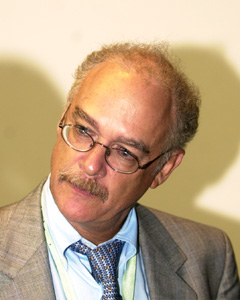|
|
|
Dennis Garrity, World Agroforestry Center, stressed that integrating conservation and poverty is a slow and sensitive process. He advocated a so-called "drip-feed" approach, which: identifies local needs and values; promotes long-lasting relationships with local communities; and relies on slow and careful spending of available resources, rather than large-scale investments. He underscored that many organizations cannot adopt the "drip-feed" approach because they focus on short-term results. Claude Martin, WWF, expressed concern that current poverty-related discussions do not distinguish between different types of poverty. He highlighted that defining poverty in terms of income alone is inadequate, since low-income people living in socially-intact environments should not be considered to be poor. He underscored the necessity of considering the social and cultural contexts of poverty, and noted that poverty is not merely a local problem, since it is often affected by the changing conditions in the world. Discussion: Participants discussed a range of issues, including: Deficiency of conservation policy frameworks and the need for intergovernmental organizations and NGOs to be more active in developing and implementing conservation policies; ways of reconciling benefits of the "drip-feed" approach with the need for rapid actions; the importance of moving beyond research toward actions; benefits of participatory planning; the distinction between economic, spiritual and social poverty; and the need for the applying human rights approach to conservation. |
|
|
|
||||||||||||||||||||||||||||
|
|
|
||||||||||||||||
|
The mayors of the cities of Durban, Curitiba, Lyon and Kuala Lumpur shared their experiences in promoting sustainable urbanization, highlighting issues and initiatives relevant to the Partnership, and expressed their willingness be involved in the Partnership. Mercedes Bresso, United Towns Organization, stressed the importance of cooperation between the public and private sectors, and advocated decentralization and city-to-city cooperation. Dominique Heron, Vivendi Environment, highlighted the Partnership's result-oriented approach, and the Partnership activities' direct link to key issues of sustainable urbanization. May East, Global Ecovillage Network, noted the success of eco-villages in eradicating poverty and in protecting the environment through a low-impact lifestyle. Catherine Day, European Commission, emphasized training of local authorities, including politicians, and noted challenges shared by cities in developing and developed countries. Jean-Louis Lambouray, United Nations Programme on HIV/AIDS, underscored the human dimension of sustainable development and called upon mayors to take action against AIDS. Christian de Perthuis, Caisse des Dépôts et Consignation, underscored the importance of local level skills, and advocated North-South partnerships. Luc Rigouzzo, Groupe Agence Française du Développement, highlighted the importance of long-term capacity building and projects run by local authorities. Deisi Weber, World Family Organization, underscored families' duties and rights, and called for decentralization at all levels. Anna Tibaijuka, Executive Director of UN-HABITAT, stressed the importance of local governance capacity, and highlighted sustainable urbanization through capacity building as a key to sustainable development. |
|
|
|
||||||||||||||||
|
Mere Pulea, University of the South Pacific, emphasized the role of law in implementing sustainable development, and the need to strengthen institutions. Noting the interlinkages between environmental protection, economic development and human rights, Pulea said that countries should determine their environmental agenda according to local contexts. She noted the natural, social and political constraints of the Asia Pacific region and recommended, inter alia: multistakeholder cooperation; setting objectives and targets; defining rights and responsibilities; updating laws; adopting enforcement mechanisms; and institutional coordination. Rajendra Singh, Tarun Bharat Sangu, introduced a project in which a local Indian community was empowered to efficiently utilize water resources by building capacity and employing common sense and traditional wisdom. He stressed that good governance starts at the community level, and not at the international level. |
|
|
|
||||||||||||||||
|
Chris Boyd, Lafarge, highlighted the importance of a global framework to reduce GHG emissions and noted in this context that it will be easier for businesses to implement global climate change policies rather than adhere to different national regulations. Charles Nicholson, British Petroleum (BP), said that BP has set itself voluntarily targets to reduce carbon emissions. He underscored the need for stronger policies that would encourage businesses to foster solutions to climate change problems. Steve Sawyer, Greenpeace International, emphasized that governments must implement the commitments agreed to the UNFCCC. He highlighted that Greenpeace encourages: the promotion of access to energy, especially for the least developed countries; targets for renewable energy supply; and reduction of fossil fuel subsidies. José Goldemberg, Brazil, said that energy efficiency, renewable energy and new technologies are crucial to tackle climate change. He recommended that the WSSD Plan of Implementation set out targets and timetables for a transition towards renewable energy. Stressing the benefits of renewable energy for developing countries, Goldemberg suggested that developing countries be better informed about these. Discussion: Participants discussed the role of the WBCSD/Greenpeace partnership in motivating the US and Australia to ratify the Kyoto Protocol. A participant called upon delegates to join the Climate Legacy programme, which seeks to neutralize carbon emissions associated with the Summit. |
|
|
|
|||||||||||||||||||||||||||||||||||||||||||||||||||||||||||||||||||||||||||||||||||||||
|
|
|
||||||||||||||||
|
Jane Nelson, International Business Leaders Forum, explained the growing contribution of the private sector in supporting and encouraging volunteering, and recommended that businesses contribute to the promotion of volunteer actions by: sharing their knowledge and skills; donating products; conducting social marketing campaigns; and channeling a percentage of their profits to the communities in which they operate. Robert Leigh, UNV, noted a UN resolution that underscores political commitment to promoting volunteerism as central to sustainable development. He highlighted the successes of the International Year of Volunteers 2001, including: greater recognition of the importance of volunteerism; increased research; improved legislation; cross-sectoral volunteer networks and partnerships among international organizations; popularity of online volunteerism; and heightened private sector volunteerism. Leigh stressed the need for: increased awareness; information on volunteering opportunities; integration of volunteerism in national development plans; and promotion of volunteering, in particular amongst the youth. |
|
|
|
||||||||||||||||||||
|
Lors du débat consécutif, et relativement au plan d'action, les participants ont insisté sur: la nécessité d'actions concrètes et d'un calendrier de mise en uvre; les actions en matière de changements climatiques, de subventions et de dumping, et de transparence et responsabilité; la création d'un mécanisme de financement pour la recherche en matière d'énergies renouvelables et d'une gestion plus responsable des déchêts; la gouvernance démocratique; la santé; et la diversité culturelle. Concernant l'OIF, les participants ont recommandé une diversification des sources de financement et l'allègement des structures administratives. Un délégué a insisté sur la nécessité d'une forte présence française lors des conférences internationales, tandis qu'un autre participant a souligné la nécessité d'une traduction et la mise a disposition de documents et d'information en langue française. Un délégué a insisté sur l'importance des partenariats comme expression d'une valeur phare de la francophonie: la solidarité. Luc-Marie Gnacadja, Ministre de l'Environnement de l'Habitat et de l'Urbanisme du Bénin, a conclu la réunion en encourageant une francophonie plus active, tandis que Roger Dehaybe, OIF, rapellant que le français est langue officielle des Nations Unies, a encouragé les gouvernements francophones dans l'utilisation du français au sein des fora internationaux. |
|
|

